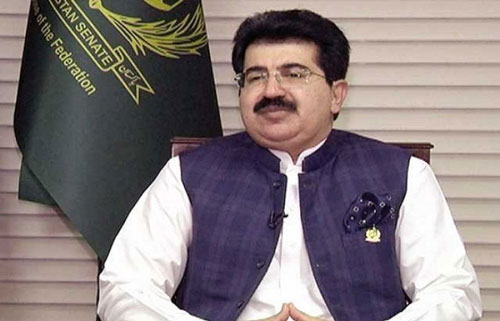ISLAMABAD – Acting President Sadiq Sanjrani, holding the office in the absence of Dr Alvi, on Monday signed Elections (Amendment) Bill 2023 and Finance Bill 2023-24 soon after their passage from the National Assembly.
Dr Arif Alvi is in Saudi Arabia these days for performing Hajj.
After approval from Senate, the lower house passed the Elections (Amendment) Bill 2023 a day earlier.
Similarly, the Finance Bill 2023-24 was also passed by the NA after incorporating amendments to impose additional taxes and reduce spending to fulfill conditions of International Monetary Fund (IMF) to secure a bailout package.
The amendments to the Elections Act 2017 are aimed at limiting the disqualification period of legislators to five years with a retrospective effect. After the said legislation, it will be up to the Election Commission of Pakistan to give election dates at own without consulting the President of Pakistan.
The said amendment will benefit PML-N Quaid Nawaz Sharif and former PTI stalwart and Istehkam-e-Pakistan Party chief Jahangir Khan Tareen who were facing disqualification for lifetime.
According to the amendment, a permanent bar or disqualification of a member is against “the letter and spirit of Islam” as well as the Constitution.” It was introduced to ensure a “fair trial and due process, and right of appeal and limit the period of disqualification in cases relating to a declaration referred to in paragraph (f) of clause (1) of Article 62”.
“The disqualification of a person to be elected, chosen or to remain as a member of the Parliament or provincial assembly under paragraph (f) of clause (1) of Article 62 of the Constitution shall be for a period not exceeding five years from the declaration of the court of law in that regard and such declaration shall be subject to the due process of law,” relevant portion of the law after amendment reads.
“The commission shall announce the date or dates of the general elections by notification in the official gazette and shall call upon the constituencies to elect their representatives,” it stated.
The Finance Bill was approved by the NA after incorporating measures such as generating additional revenue of Rs215 billion through new taxes and cutting spending by Rs85b to reduce the fiscal deficit.










